Allie Richmond
TCCS ’19
Water laughs. It giggles and gurgles in streams and brooks, and whispers amusement in creeks and springs that quietly trickle through dense forests and down rocks with moss. Water delivers unexpected bursts of joy on the drops of light rain that mysteriously wash over the earth as the sun shines on. It creates a patchwork of glittering diamonds in the sky. It cackles, as the rain turns heavy and pitted, as the wind carries it down faster in a deceivingly loud breath of life. Then it coos in contentment as smooth, crystalline water. Sweet and soft like the giggle of a child, revealing tender enthusiasm for bright days and warm dives below the surface.
Beguiling laughs lap the shoreline of the great coasts, the water tantalizingly immense and mysterious. Familiar up close, but further out and deep below, it continually shocks and startles – pulling one in closer to see more. Waterfalls pour over cliffs and outcroppings delivering hearty, bellowing larks that can be heard long before and long after they are seen up close. Water laughs in joy and sadness. It sarcastically scoffs at our meekness, leaving us cold as ice, sharp and judgmental – or, clear and concise. Water speaks of its amusement in many tones. It carries the echoes of ages, the most beautiful face to ever laugh without wrinkling up in the way humans do. We are unable to experience joy as profoundly as it does. But yet, it still shares with us, and encourages us to try.
I grew up next to a lake. It laughs a lot. In the wind it has short and clipped laughs, but these deepen into rolling gasps when the rain begins to tickle it. I use to listen to this laughter and join in as a child. I grew up and began to recognize each melody, when the water wanted company in its joy and remained still or playfully rambunctious, or when it had a private laugh, with rough bursts in high rises, and cutting falls in the sound waves, leaving it too difficult to join. So, in times of shared companionship, I would sail out on the still morning waters when the lake remained sleepy enough to only ripple in thoughtful acknowledgement, and interpret my own quiet laughter; the little inklings of dreams and thoughts that produce hidden smiles that dance at the corners of my lips.
I learned that people should be treated with the same observance and sincerity that the waves demand in their wake.
In times of reckless joy, the waters swelled up in waves curling like daring smirks, and I would swim deep and strong with a fiery soul or ride the waves at outrageous speeds to feel the bubble of nervous and excited laughter rise from my chest with each goal gained. I learned that all people take after water in this way. We exert certain tides to fit our moods. I learned that people should be treated with the same observance and sincerity that the waves demand in their wake. Water taught me to laugh, and how to laugh with others. It taught me to experience joy in many forms and to appreciate the ways in which life and feelings are expressed.
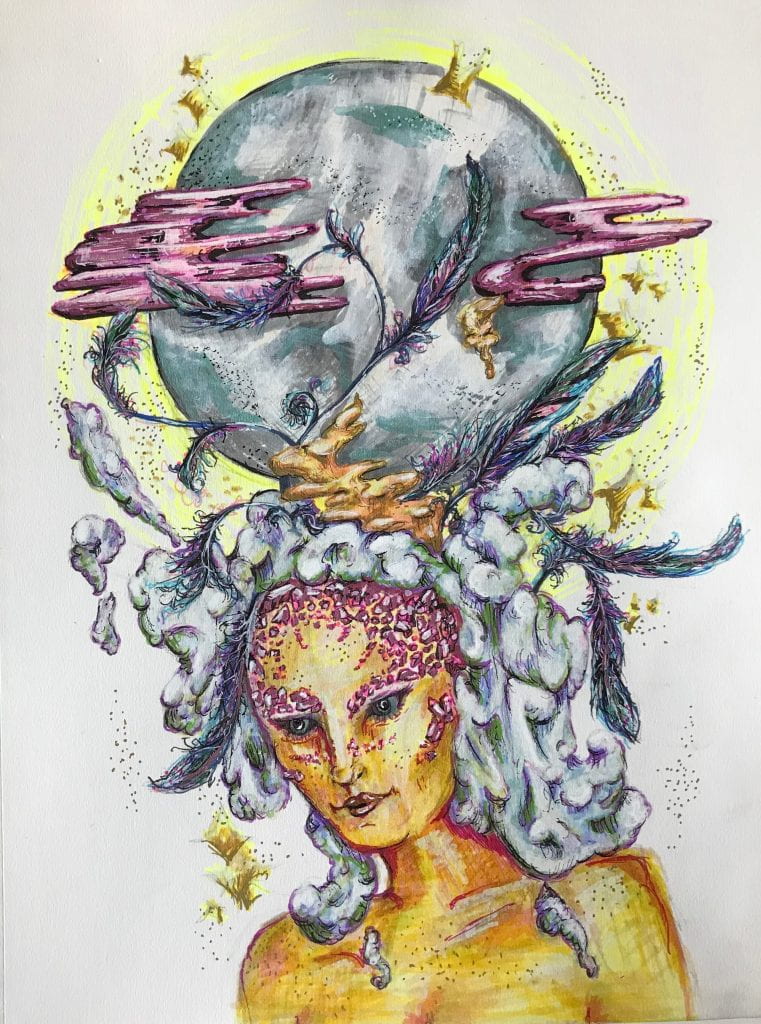
The waves on the lake are where I found my playful spirit. The waves were also the ones of my warmest childhood memories of home. I still hear the lapping of the ripples along the peaceful evening shoreline, the sound similar to the sound of a puppy contently licking up water from her bowl. I still see the last glitters of sunlight fracture and dissipate along the rolling surface allowing slivers of clarity that reveal the swimming fish below. I still overhear the tingling laughter of my sisters as they splash in the shallows. Where the water is a warm with a welcoming smile after a long day in the hot sun. We were so young and charmed by life; the water reflected our soft naivety.
As I grew a little older, my parents brought us to the cabin – a little two room shack nearly indistinguishable from the trees around it. Here, I encountered the babbling creeks that brought the girlish laughter of teenage years. The excited and bubbling laughs that also flow in a nervous and shy manner. The creeks lead to a large muddled marshland full of unsure twists and moody pools of mucky waters. Here I realized that not all laughs are playfully shared, some are exerted in fear and trepidation. Laughter in the face of uncertainty, learning to compromise softness for tough determination not to let the sludge soaked bogs, ambiguous and changing, slow down my travels to a complete halt.
In the river waters I learned to create my own laughter and enjoy the movement of aging.
The low and slow laugh of the swamps, the kind that make one shudder, often give way to more level currents. The clogs of mud shift and become open rivers where laughter flows with strength and self-assurance. In the river near the cabin, my sisters and I would float along with the loud and boisterous laughter that makes all that touch it join on the rush of energy. We played in the rapids and waded into the deeper pools that swirled in determined delight. Life for the laughing river is fast-paced and constantly looking forward. The belting amusement of river rapids is consuming, direct, and incredibly influential. In the river waters I learned to create my own laughter and enjoy the movement of aging.
The year I moved to college, the tides changed completely. Luring laughs guided me to the coasts where laughs were different. Salty, with an undertow of ancient knowledge. The tidal pools swelled around me, teeming with lively giggles of deeper intuition that bespoke of the depths hidden from the shallow interest of curious eyes. New life, mixed with old experience, the ever-changing tides that mysteriously transform the landscape and renew the shores all the while dependable in its coming and going.
In these enticing grins left on the wet sand, I found my passion for life. Laughter became deep and rich, shared with the hopeful intellectuals and vibrant minds.
In these enticing grins left on the wet sand, I found my passion for life. Laughter became deep and rich, shared with the hopeful intellectuals and vibrant minds. The memories of many lives washed into our collective bay of understanding, just as the deep trenches of the ocean collect the remnants of old empires and ages, and I learned to share laughs to collect experience. I came to entertain the idea of temporary chuckles of immense understanding with temporary moments in time, and to extend my smiles curiously with passion and power.
Water collects our laughs. It categorizes each tone into natural music so that the earth can laugh and play as we do. We, in turn, learn to laugh again from the babbling brooks and whistling white waters. It is a cycle of happiness and joy that brings life to that which is empty. Just as water feeds the land and makes it grow lush and green, we grow up with laughter guiding us through the dark and the light. It feeds our souls and allows us to flow with the tides and currents of our lives.
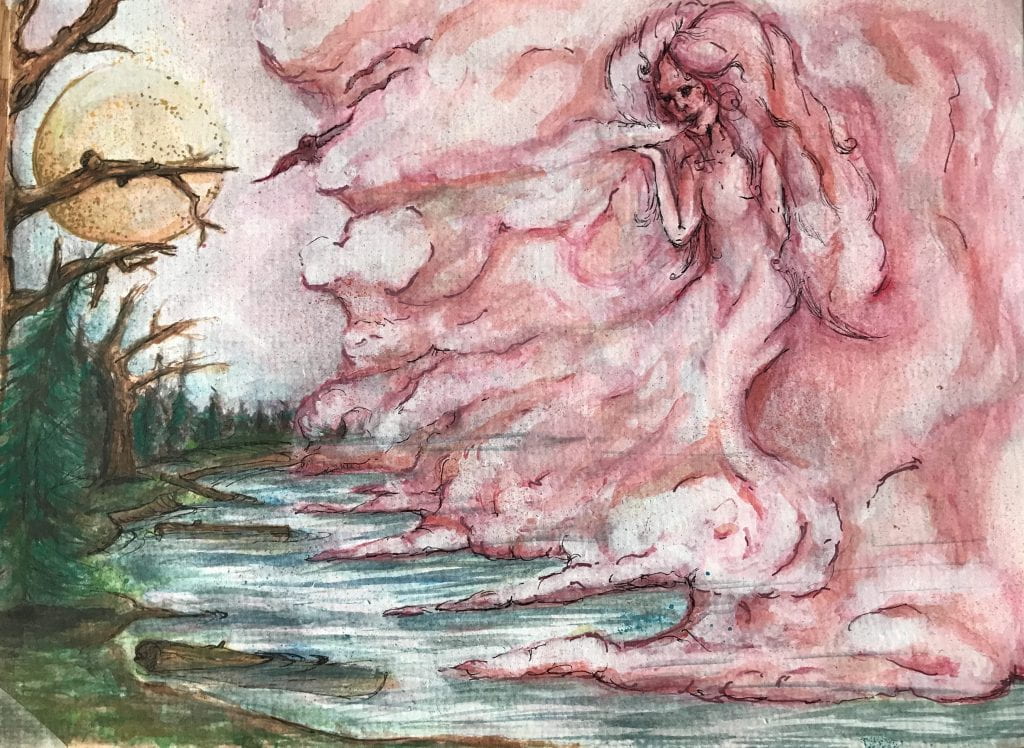

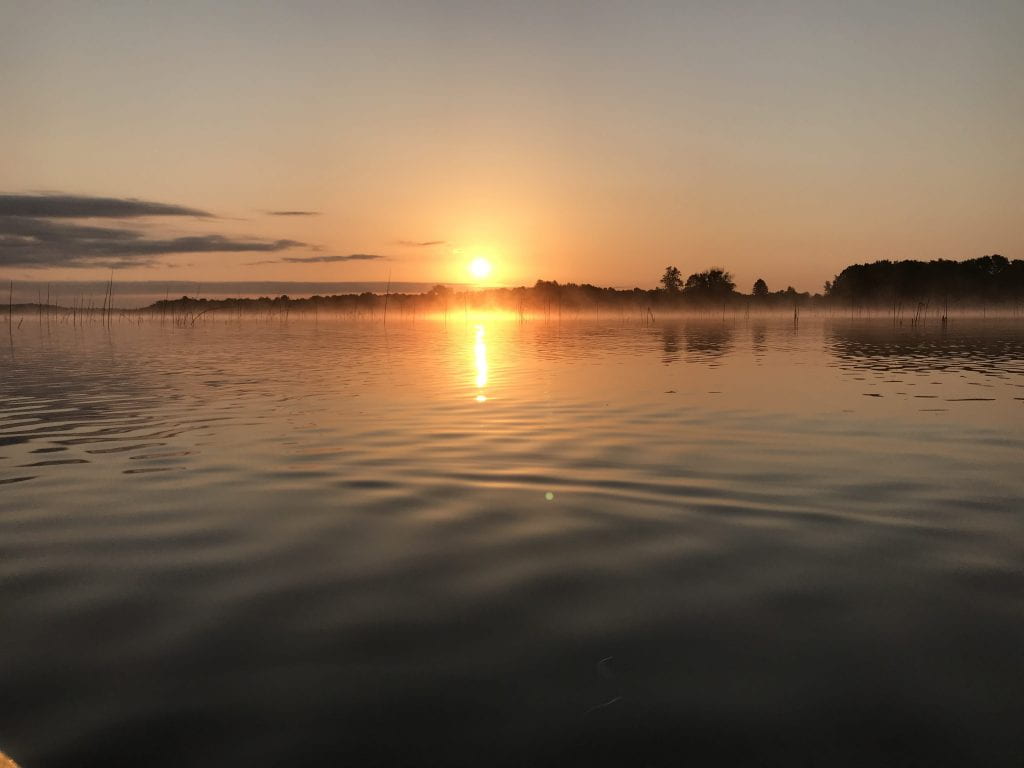
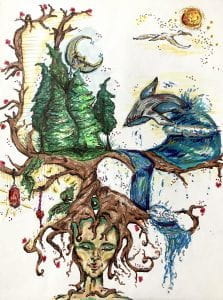

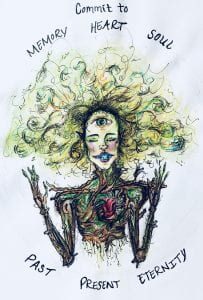
You must be logged in to post a comment.